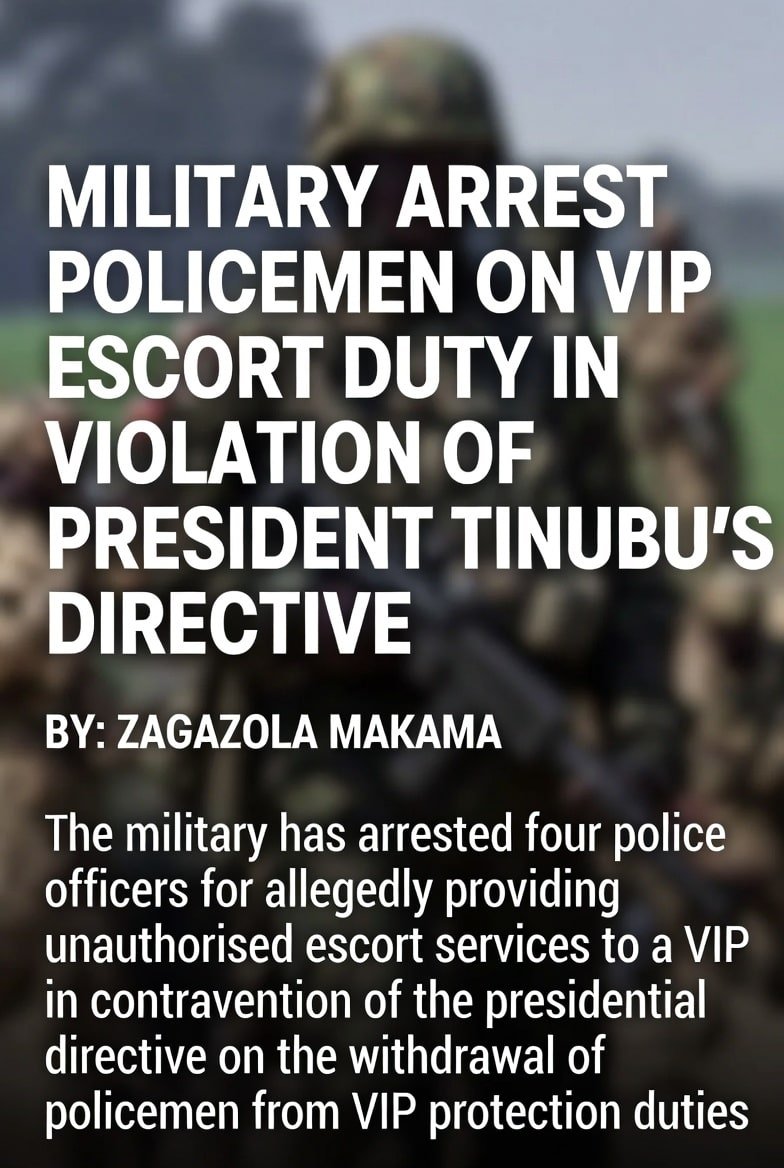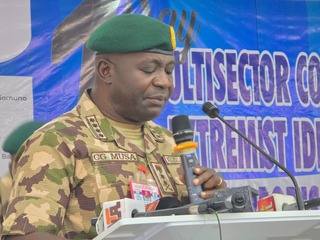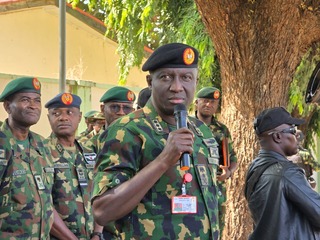CDS identifies innovative measures against evolving global security threats
The Chief of Defence Staff (CDS) Gen. Christopher Musa, has underscored the need for innovative, localised, and non-kinetic initiatives to stay ahead of global evolving security threats.
Musa, represented by Brig.-Gen. Yusuf Ali, Director of Intelligence and Security, Defence Headquarters, gave the advice at the inauguration of the workshop on guidelines and manual to counter-terrorism and prevent crime: Crisis Mitigation Centre-LW3098” in Abuja.
The event was organised by Aides Small Project International (ASPI), an NGO, in collaboration with the Police Public Relations Committee (PCRC) and BusinessDay, also an NGO.
The event centred on the launch of a practical guide and training manual for setting up crisis mitigation centres/anti-terrorism bases, best described as the “Ward-Centric Accounter Project”.
According to him, the Centre – LW3098, is a landmark initiative that embodied the essence of innovation, resilience and partnership in the collective mission, to ensure the security and stability of the country.
Musa said, “As we launch this initiative, I urge us to reflect on our roles in nurturing a people-centric security network. Let us build a force that protects, listens, engages and empowers.
“Let us embrace innovative tools like Open-Source Intelligence (OSINT) to stay ahead of evolving threats: let us put our people at the centre of everything we do, for they are our most incredible resource and enduring strength.
“Together, we can transform security from a challenge into an opportunity for growth, stability and national unity.
“Together, we can operationalise this vision of collaborative, resilient and professional security forces to achieve our constitutional responsibilities.
“Let this centre become a beacon of hope, a testament to what is possible when we unite in purpose, resolve and action.”
The Inspector-General of Police (IGP), Dr Olukayode Egbetokun, stated that terrorism remained a pervasive threat that required innovative and deceptive approaches to combat it.
Egbetokun was represented by ASP Harrison Orurio, Area Commander of Life camp, in the FCT,
According to him, in recent years, there has been a growing recognition of the importance of a localised anti-terrorism programme focused on security diplomacy, as a means to tackle threats of terrorism.
“This presentation will explore the organisation of such localised anti-terrorism programmes over civil-led non-kinetic initiatives, emphasise the role of OSINT in confronting and combating violent extremism,” Egbetokun said.
For his part, Mr Moses Owharo, President of the International Community of Africans in Diaspora (ICAD), an NGO, said that the manual will help to foster engagement between security agencies and the citizenry, as security provision is a role of all and sundry.
Owharo, a co-convener of the event said, “Effective security is not solely the responsibility of security agencies. It requires a collaborative effort between security agencies and the public.
“This guide and manual emphasizes the importance of strong security-civil relationships, particularly police-community relations and military-civil relations.
“By fostering trust and cooperation, we can enhance intelligence-sharing, early warning systems, and community mobilization.”






























